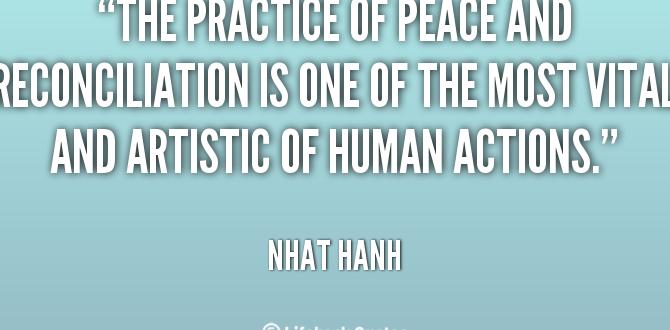The best healthy relationship for couples is built on consistent effort, open communication, mutual respect, and shared growth. It’s about actively choosing each other every day and working together through life’s ups and downs with understanding and affection.

Ever feel like building a truly great relationship is a mystery? You see happy couples and wonder, “What’s their secret?” It’s a common thought, and sometimes, it can feel a bit frustrating. But the truth is, a strong, healthy relationship isn’t about luck; it’s about the everyday choices you make together. It’s about learning, growing, and connecting with your partner on a deeper level. At AmicableTips, we believe that understanding the building blocks of a healthy partnership can make all the difference. We’re here to guide you, step-by-step, so you can start creating the strong, loving bond you both deserve. Get ready to discover the essential elements and practical ways to nurture your connection.
The Best Healthy Relationship for Couples: An Essential Guide
Welcome to your guide on building and maintaining a thriving relationship! In today’s fast-paced world, it’s easy for couples to drift apart. Life gets busy, communication breaks down, and small misunderstandings can grow. But what if you could learn the keys to not just surviving, but truly flourishing together? This guide is designed for you, whether you’re just starting out or have been together for years. We’ll break down the core components of a healthy relationship, offering practical advice that you can start using today. Think of this as your roadmap to deeper connection, stronger trust, and lasting happiness with your partner.
Why Healthy Relationships Matter
Healthy relationships are the bedrock of a happy and fulfilling life. They provide a sense of security, belonging, and emotional support. When you’re in a healthy partnership, you have someone to share your joys with, a shoulder to lean on during tough times, and a teammate to navigate life’s challenges. The benefits extend beyond just the couple; research consistently shows that strong relationships contribute to better mental and physical health, increased longevity, and greater overall well-being. A healthy relationship fosters personal growth, encouraging each partner to become their best self. It’s a space where you feel seen, heard, and valued, which is fundamental to human happiness.
The Core Pillars of a Healthy Relationship
A truly healthy relationship for couples isn’t built on a single foundation, but on several interconnected pillars. These are the essential elements that, when nurtured, create a resilient and loving bond. Let’s explore what they are:
1. Open and Honest Communication
This is arguably the most critical pillar. It means being able to talk about anything – your hopes, fears, needs, and frustrations – without judgment. It’s also about active listening: really hearing what your partner is saying, not just waiting for your turn to speak.
- Express yourself clearly: Use “I” statements to express your feelings without blaming your partner (e.g., “I feel hurt when…” instead of “You always…”).
- Listen actively: Pay attention, make eye contact, nod, and ask clarifying questions. Try to understand your partner’s perspective, even if you don’t agree.
- Choose the right time: Discuss important issues when you are both calm and have time to talk without interruptions.
- Be honest, but kind: Honesty is vital, but it should always be delivered with empathy and consideration for your partner’s feelings.
2. Mutual Respect
Respect means valuing your partner as an individual, acknowledging their thoughts, feelings, boundaries, and choices. It involves treating them with consideration, even during disagreements.
- Value their opinions: Even if you have different views, show that you respect their right to hold them.
- Respect boundaries: Understand and honor your partner’s personal space, time, and emotional limits.
- Avoid contempt: Never resort to name-calling, sarcasm, or belittling in arguments. This erodes respect quickly.
- Celebrate their individuality: Appreciate what makes your partner unique and support their personal pursuits.
3. Trust and Honesty
Trust is the feeling of security that comes from knowing you can rely on your partner. Honesty is the foundation upon which trust is built. It means being truthful and transparent in your actions and words.
- Be reliable: Keep your promises and commitments.
- Be transparent: Share information openly, especially about significant matters.
- Be accountable: Own up to your mistakes and apologize sincerely when you’ve erred.
- Build trust over time: Trust isn’t built overnight; it’s earned through consistent, trustworthy behavior.
4. Support and Encouragement
A healthy relationship involves being each other’s biggest cheerleader. This means supporting your partner’s dreams, goals, and efforts, and being there for them through thick and thin.
- Encourage their aspirations: Support your partner’s personal and professional goals.
- Be a source of comfort: Offer emotional support during difficult times.
- Celebrate successes: Share in their triumphs and acknowledge their achievements.
- Offer practical help: Sometimes, support means lending a hand with tasks or responsibilities.
5. Quality Time Together
In our busy lives, making dedicated time for each other is crucial. This doesn’t always mean grand gestures; it’s about connection, whether through shared activities, conversations, or simply being present with one another.
- Schedule regular dates: Even if it’s a quiet night in, make time for focused connection.
- Be present: Put away distractions like phones when you’re together.
- Share hobbies: Find activities you both enjoy and do them together.
- Engage in meaningful conversations: Go beyond surface-level chat and discuss your thoughts, feelings, and experiences.
6. Independence and Personal Space
While togetherness is important, so is maintaining your individual identities. Healthy relationships allow space for each partner to pursue their own interests, friendships, and personal growth.
- Respect alone time: Understand that sometimes your partner needs time to themselves.
- Support individual pursuits: Encourage each other to maintain personal hobbies and friendships.
- Maintain your own identity: Don’t lose yourself completely in the relationship; nurture your unique self.
7. Conflict Resolution Skills
Disagreements are inevitable. What matters is how you handle them. Healthy couples learn constructive ways to navigate conflict so it strengthens, rather than damages, their bond.
- Focus on the issue, not the person: Avoid personal attacks.
- Seek to understand: Try to see the situation from your partner’s point of view.
- Compromise: Be willing to meet in the middle.
- Know when to take a break: If things get too heated, agree to pause and revisit the discussion later.
- Forgive and move on: Holding grudges can be destructive. Learn to forgive and let go after resolution.
Practical Steps to Foster a Healthy Relationship
Knowing the pillars is one thing; implementing them requires action. Here are practical steps you and your partner can take:
| Action | Description & Benefit | How to Implement |
|---|---|---|
| Weekly Check-in | Dedicated time to discuss the week, upcoming plans, and how you’re both feeling. Builds connection and addresses issues before they escalate. | Set aside 30-60 minutes each week. Share something you appreciated about your partner, discuss any challenges, and plan something fun together. |
| Active Listening Practice | Focusing intently on what your partner is saying to fully understand their perspective. Improves communication and shows you care. | When your partner speaks, put down your phone, make eye contact, and don’t interrupt. Paraphrase what you heard (“So, if I understand correctly, you’re saying…”) to confirm. |
| Expressing Appreciation Daily | Verbally acknowledging and thanking your partner for things, big or small. Reinforces positive feelings and strengthens the bond. | Make it a point to say “thank you” at least once a day for something specific your partner did or said. A hug and a sincere compliment also work wonders. |
| Setting Shared Goals | Working together towards common objectives, whether big (buying a house) or small (planning a vacation). Creates a sense of teamwork and shared future. | Brainstorm things you both want to achieve. Break down larger goals into smaller, manageable steps that you can tackle together. |
| Respecting “Me Time” | Ensuring each partner has opportunities for individual activities and downtime without guilt. Fosters personal growth and prevents resentment. | Communicate needs for alone time openly. “I need an hour to myself this afternoon to read” is a healthy way to express this. Support your partner’s need for their own space too. |
| Learning Your Partner’s Love Language | Understanding how your partner best gives and receives love (e.g., words of affection, quality time, gifts, acts of service, physical touch). Ensures love is felt and appreciated. | Read up on the five love languages. Discuss with your partner which ones resonate most for each of you and make an effort to speak their primary language. You can learn more from the work of Dr. Gary Chapman on 5 Love Languages. |
Navigating Challenges Together
No relationship is perfect, and challenges will arise. The key to a healthy relationship is how you face these obstacles as a team. Financial stress, differing life goals, external pressures – these can all test a partnership. Instead of letting them drive a wedge between you, use them as opportunities to grow closer.
Consider a situation where one partner is going through a difficult time at work. Instead of pulling away, the other partner can offer unwavering support. This might mean listening without judgment, taking on extra household chores, or simply reminding them of their strengths. This kind of consistent, supportive action builds immense resilience within the relationship. According to studies by institutions like the American Psychological Association, supportive relationships are a major buffer against stress and adversity.
When conflicts arise, remember the communication and conflict resolution skills discussed earlier. It’s not about winning an argument, but about finding a solution that works for both of you and strengthens your connection. Sometimes, resolving conflict might involve learning to apologize effectively. A genuine apology involves acknowledging your mistake, expressing remorse, and showing a commitment to not repeat the behavior. This is crucial for repairing any damage and rebuilding trust.
The Role of Fun and Playfulness
It’s easy to get caught up in responsibilities and forget to have fun! A healthy relationship for couples is also about shared laughter, lightheartedness, and creating joyful memories. Playfulness can be a powerful stress reliever and a way to keep the spark alive.
- Spontaneity: Surprise your partner with a date night, a small gift, or an unexpected outing.
- Inside jokes: Cherish the unique humor and shared references that develop between you.
- Shared hobbies: Engage in activities that you both find enjoyable and relaxing.
- Laughter: Watch a funny movie, tell jokes, or reminisce about humorous past experiences.
- Compromise on fun: Make sure that your fun activities cater to both of your interests. It’s okay to try something new your partner enjoys!
Growing Together: Long-Term Health
A healthy relationship isn’t static; it evolves. As individuals grow and change, the relationship must adapt. This requires a commitment to ongoing personal growth and a willingness to grow together.
Personal growth includes developing self-awareness, managing emotions, and pursuing individual interests. When both partners are committed to their own development, they bring more to the relationship. For example, someone who works on their emotional intelligence might become better at understanding their partner’s needs and responding with empathy. This aligns with principles discussed by relationship experts who emphasize that individual well-being is a predictor of relationship health.
Growing together means regularly checking in on your shared vision for the future. Are your goals still aligned? Are you supporting each other’s evolving dreams? This requires continuous communication and a willingness to adapt. It’s about creating a shared narrative that honors both individual journeys and your collective path.
When to Seek Professional Help
Even the most committed couples can benefit from professional support. If you find yourselves stuck in negative patterns, struggling with significant life transitions, or unable to communicate effectively, seeking help from a qualified therapist or counselor can be incredibly beneficial. Relationship counseling offers a neutral space to explore issues, learn new skills, and find healthier ways to connect. Remember, seeking help is a sign of strength, not weakness, and can be a vital step in strengthening your partnership.
Many reputable organizations offer resources and directories for finding relationship professionals. For instance, the Gottman Institute, founded by renowned relationship researchers Dr. John and Julie Gottman, provides extensive resources and training for therapists specializing in couples counseling. Exploring their Gottman Institute for Couples can offer valuable insights and pathways to professional support.
Frequently Asked Questions About Healthy Relationships
Q1: How much time should couples spend together?
A1: There’s no magic number; quality is more important than quantity. The goal is to find a balance that ensures you have enough dedicated time for connection without sacrificing individual needs for space and personal pursuits. Regular dates, even at home, are key.
Q2: Is it normal for couples to argue?
A2: Absolutely! Disagreements are a natural part of any relationship. What’s crucial is how you argue. Healthy couples focus on constructive conflict resolution, aiming to understand each other and find solutions rather than winning.
Q3: How can I rebuild trust after it’s been broken?
A3: Rebuilding trust takes time, consistency, and genuine effort from the person who broke it. It involves open communication, accountability, sincere apologies, and a demonstrated commitment to trustworthy behavior over an extended period.
Q4: What if my partner and I have very different interests?
A4: It’s healthy to have individual interests! The key is to also find common ground. Explore new activities together that might be new to both of you, or take turns planning activities based on each person’s interests.
Q5: How important is physical intimacy in a healthy relationship?
A5: Physical intimacy is important for many couples, but its role and expression vary. What matters most is that both partners feel comfortable, desired, and respected, and that you openly communicate your needs and desires regarding physical connection.
Q6: Can a relationship be healthy if one person gives more than the other?
A6: While there will be times when one partner naturally gives more, a persistent imbalance can lead to resentment. A healthy relationship ideally involves a sense of equitable contribution and mutual effort over time, where both partners feel their needs are being met.
Conclusion
Building and maintaining the best healthy relationship for couples is an ongoing journey, not a destination. It requires dedication, patience, and a willingness to show up for each other, day in and day out. By focusing on open communication, mutual respect, trust, support, quality time, individuality, and effective conflict resolution, you lay a robust foundation for a love that can weather any storm and flourish through the years. Remember that growth is inevitable, both individually and as a couple. Embrace the challenges as opportunities to deepen your connection, keep the fun alive, and continuously nurture the unique bond you share. The effort you invest in your relationship today is the investment in a lifetime of happiness and fulfillment together.






